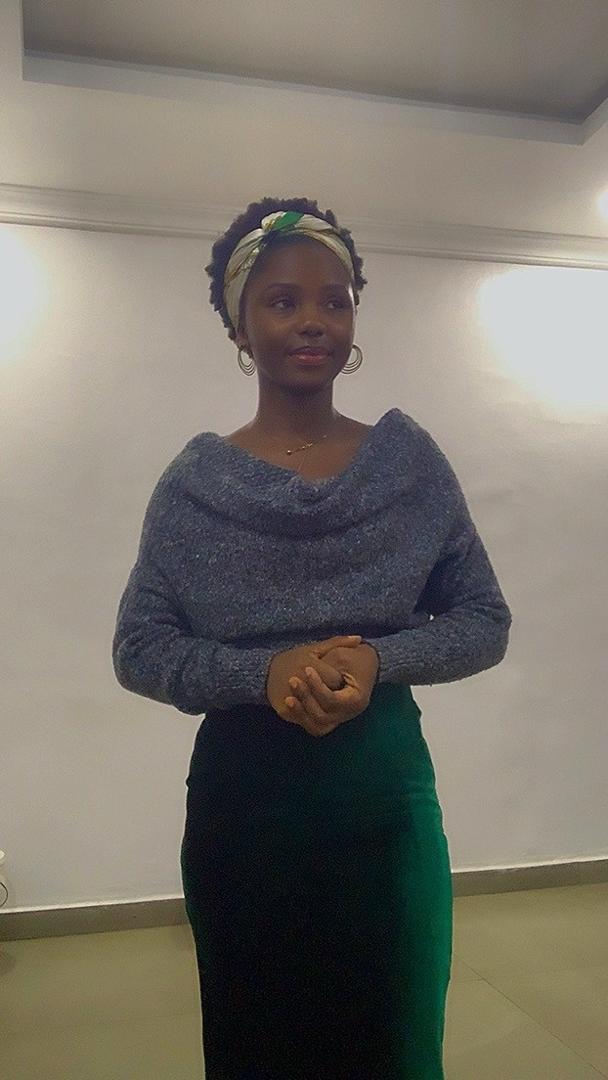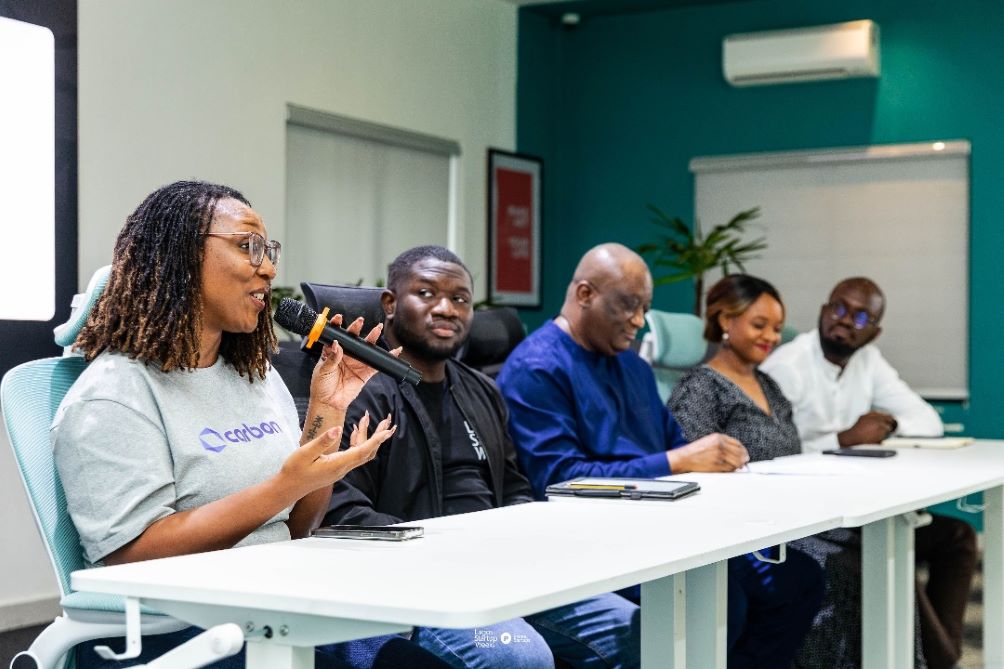By Caroline Abiodun Aruleoba
In a world powered by innovation, technology stands as the engine driving progress in every conceivable sector. From artificial intelligence (AI) to blockchain, from biotechnology to space exploration, technology is shaping how we live, work, play and communicate.
Yet, in this dynamic and transformative field, the underrepresentation of women remains a grave concern—especially in Nigeria, where socio-cultural, economic, and systemic barriers have long hindered female participation in the tech industry. However, the tide is gradually changing and Nigerian women are rising to the occasion, breaking stereotypes, and redefining the narrative in the tech space.
The Gender Divide in Technology
Globally, the statistics paint a sobering picture: women make up less than 30per cent of the workforce in science, technology, engineering and mathematics (STEM) fields. In sub-Saharan Africa, the numbers are even more concerning, with a significant gender gap in access to education, digital tools, and employment opportunities.
A report by Africa: The Big Deal, which tracks investments in the continent’s startups ecosystem revealed that only three female-led startups have made the list of the top fundraisers since 2019.
According to the report, the three female-led startups that broke into the male-dominated list include Nigerian logistics start-up Kobo360 led by Cikü Mugambi who joined as Chief of Staff and Investors Relations in 2021, before replacing co-founder and CEO Obi Ozor in August 2023.
Another Nigerian logistics startup Sabi, co-founded by Anu Adasolum, who also serves as its CEO, also made the list at number 40. Sabi raised $38 million in a Series B round in May 2023, with its valuation rumored to exceed $300 million. It ranked 40 on the top 100 list.
The third startup is South Africa’s Cape Bio Pharms, led by CEO Belinda Shaw. Cape Bio Pharms raised over $50 million through a grant in 2020, though it hasn’t reported any additional fundraising since. The startup is number 44.
Despite Nigeria being home to the largest economy in Africa and a burgeoning tech ecosystem often referred to as the “Silicon Valley of Africa,” women remain underrepresented in the tech workforce.
The challenges are multifaceted. Societal norms often discourage girls from pursuing careers in STEM, labeling such paths as “unfeminine.” Limited access to quality education and dearth of infrastructure especially in rural areas, further compound the issue. Even for those who break through these barriers, the workplace environment can be unwelcoming, with unconscious bias, unequal pay, and limited opportunities for career advancement creating additional hurdles. Yet, amidst these formidable challenges, a quiet revolution is unfolding.
Nigerian Women Leading the Charge
Across Nigeria, a growing number of women are defying the odds and making their mark in the tech industry. From software engineers to tech entrepreneurs, they are proving that gender is no barrier to innovation and excellence.
Take, for instance, Dr. Ngozi Okonjo-Iweala, whose influence in global finance and development extends into technology. As the former Managing Director of the World Bank and currently Director-General of the World Trade Organization, she champions the use of tech solutions to address poverty and inequality. Another trailblazer is Funke Opeke, the founder and former CEO of MainOne, a leading provider of innovative telecom services and network solutions in West Africa. Her groundbreaking work in improving internet connectivity across the continent has earned her global acclaim.
Also creating waves in the industry is Solape Akinpelu, the founder of HerVest, a women-focused and inclusive fintech platform for the underserved and excluded women on the continent. Her platfrom enables women to participate in savings, impact investments, and credit, particularly for smallholder women farmers in the country. With over 40,000 members, HerVest is dedicated to improving women’s livelihood via easy financial access and services.
The Divisional Chief Executive Officer of Sales Networks at Interswitch, Chinyere Don-Okhuofu, is also a force to be reckoned with in the industry. She is a leader in the payment industry with close to two decades of experience.
Tomilola Adejana is another passionate female techpreneur changing the narrative. After collaborating on SmartCredit, a product by Access Bank and Airtel, she founded Bankly, a fintech company that promotes financial inclusion by offering secure, innovative services to the unbanked and underserved populations.
Yanmo Omorogbe is Bamboo’s co-founder and chief operating officer (COO), an indigenous digital wealth management and investment platform that gives Nigerians real-time access to buy, sell, or hold assets traded on the United States (US) stock exchange from their mobile phones or computers within the confines of the homes.
The CEO and CTO of Okra, Fara Ashiru-Jibutoh, is making the difference. Okra is a Nigeria-based fintech platform that enables secure, real-time financial information exchange between customers, applications, and banks. Before venturing into Okra, she had worked with American startups such as JP Morgan Chase, Sana Benefits, Fidelity Investments, BMW, and Canva, where she gained experience in building and scaling products in frontier markets.
In the world of startups, Odunayo Eweniyi stands out like a diamond. As co-founder of PiggyVest, a fintech company revolutionizing savings and investment for Nigerians, Eweniyi is also a vocal advocate for women in tech, co-founding initiatives such as the Feminist Coalition, which works to empower Nigerian women in all spheres of life.
There are so many other women out there shattering the glass ceilings with their innovative products that are providing solutions to contemporary human challenges.
Initiatives, Opportunities to close the gender gap
The rise of these trailblazers highlights the importance of creating opportunities to nurture the next generation of women in technology. Fortunately, several initiatives are springing up across the country to close the gender gap and inspire young girls to pursue careers in STEM.
Programs such as She Code Africa, The Women Techsters Initiative, and Girls Who Code Nigeria are equipping girls and women with the skills and confidence to excel in tech. These initiatives provide mentorship, training, and resources, ensuring that no girl is left behind in the digital revolution. They also challenge traditional stereotypes, showing young girls that they can aspire to be coders, data scientists, or tech entrepreneurs.
Corporate organizations are also stepping up. The Big Techs, such as Google, Microsoft, and Andela have launched scholarships, internships, and accelerator programs aimed at increasing female participation in technology. These efforts are complemented by government policies promoting gender equality in STEM education and employment, though much work remains to be done.
Why Women in Tech Matters
The inclusion of women in technology is not just a matter of fairness—it is a necessity for innovation and economic growth. Studies consistently show that diverse teams perform better, bring fresh perspectives, and foster more creative problem-solving. In Nigeria, where over 40 per cent of the population is under the age of 15, empowering women in tech is crucial to harnessing the full potential of the nation’s human capital.
Moreover, technology offers a unique opportunity for women to break free from traditional limitations. Remote work, flexible hours, and the global nature of the tech industry allow women to balance professional ambitions with personal responsibilities. By embracing technology, Nigerian women can contribute to national development while achieving financial independence.
Inspiring Next Gen
To truly bridge the gender gap in technology, we must start early. Parents, educators, and policymakers must work together to inspire young girls to dream big and pursue careers in STEM. This includes updating school curricula to emphasize coding, robotics, and other tech skills, as well as creating safe spaces where girls can explore their interests without fear of judgment.
Role models play a critical role in this journey. When girls see women excelling in tech, they are more likely to believe in their own potential. Media representation is equally important; stories of successful women in technology should be celebrated and amplified to challenge stereotypes and shift societal perceptions.
A Future Worth Building
The future of technology in Nigeria—and indeed the world—depends on the full participation of women. As we stand on the brink of the Fourth Industrial Revolution, the contributions of women will be indispensable in shaping a more inclusive, innovative, and equitable society. From coding the next big app to solving global challenges through artificial intelligence, Nigerian women have the power to lead the charge.
It will not be an easy road. The barriers are real, and the journey will require collective effort, determination, and resilience. But if the stories of trailblazing women like Opeke and Eweniyi teach us anything, it is that the impossible is achievable.
The question is no longer whether women belong in technology—they do. The question is how we, as a society, can support and empower them to thrive. Because when women rise, nations soar. And when Nigerian women lead in technology, the world watches in awe.
Abiodun Aruleoba is Chief Technology Officer (CTO) at Newage Solutions and Technologies.






